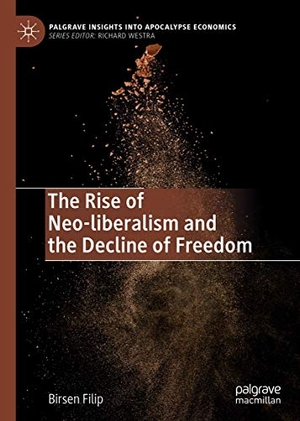Für statistische Zwecke und um bestmögliche Funktionalität zu bieten, speichert diese Website Cookies auf Ihrem Gerät. Das Speichern von Cookies kann in den Browser-Einstellungen deaktiviert werden. Wenn Sie die Website weiter nutzen, stimmen Sie der Verwendung von Cookies zu.
Cookie akzeptieren
Birsen Filip
The Rise of Neo-liberalism and the Decline of Freedom
- Springer International Publishing
- 2020
- Gebunden
- 364 Seiten
- ISBN 9783030616229
This book examines the relationship that prevails between the state and freedom in the works of Milton Friedman and Friedrich Hayek, as well as those of some of their peers, including Gary Becker, James Buchanan, and George Stigler. The author explains that their concept of freedom was largely derived from the principles and values of neo-liberalism. However, she maintains that neo-liberals never cared about providing the masses with genuine freedom; rather, they value freedom for its instrumental value in terms of facilitating the global spread of free-market capitalism. The author explains that the neo-liberal concept of freedom has been a very useful tool in promoting the
Mehr
Weniger
zzgl. Versand
in Kürze